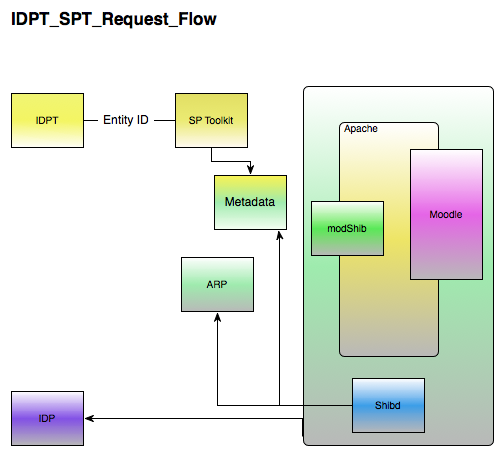...
For this project, the group has chosen SAML for the wire (the "mesh" in the Detailed Design diagram) protocol. This means that the IDMSTK and the SPTK will use SAML for communication. SAML was chosen because it is already used by Shibboleth, and with the advent of the Change Notify protocol, it was seen as the best option in terms of meshing with current infrastructure/processes.
Sample Request Flow
IDMS Toolkit
The IDMS Toolkit (IDMSTK) is a program which accepts requests from the various SPTKs (see SPTK section, below) for the purposes of account provisioning in a service provider. There is only one IDMSTK per institution, where there could be n SPTKs. The IDMSTK processes basic requests sent from the various SPTKs, and in turn, looks into the institution's local IDMS to fulfill the request. It is possible that not every institution's IDMS will be able to respond to all of the requests.
...
- Get all of the changed IDs since the given time:
getChangedSubjects(Time t) - Get all changes for the given subject since the given time:
getChangesForSubjectSinceTime(SubjectID id, Time t) - Get current state of the given subject:
getSubject(SubjectID id) - Get the current state of everyone:
getAll()
| Info | ||
|---|---|---|
| ||
The second bullet above is not 100% clear to me, as I don't think we can expect an IDMS to be able to relay all changes for a given person from a given point in time. So, if someone can clarify this one, that will be great. - Lucas Rockwell |
The requests outlined above will be performed over the wire using SAML (see reason for this in the Wire Protocols section, above).
The IDMSTK is comprised of the following:
...
